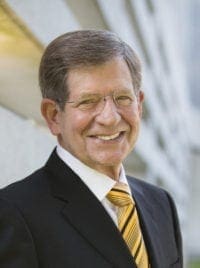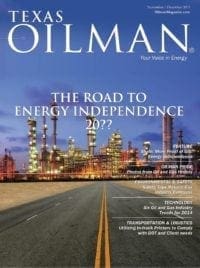Famed Industrialist and oil and gas tycoon, J. Paul Getty, once said, “If business is your profession, then you should make politics your business.” On that note, Louisiana voters are facing multiple elections over the next year. The 5th U.S. congressional district is voting next month (November 16th) between two Republican candidates to see who will head to Washington D.C. to replace former Congressman Rodney Alexander. Louisiana Supreme Court District 2 will be electing a new member to the state bench in the Fall of 2014. The mid-term elections for U.S. congressional races will also take place next Fall of 2014. And finally, the state of Louisiana will be electing a new U.S. senator within the next year.
What do these political races mean to our state and for the future of the Louisiana oil and gas industry? In order for our state to become more business-friendly than we currently are today, state and federal officials must be elected that represent the entire business community. An elected official is not pro-business if he only supports the healthcare industry, or just the auto manufacturing industry, or even just the oil and gas industry. A quality candidate supports the entire business community.
For example, with the current congressional race that will occur in a few weeks, voters must do his or her homework. Watching a political ad or mimicking your friend’s vote is not sufficient. The voters must understand the platform in which the candidate is running, and also what his or her track record displays.
One congressional candidate from the 5th District is a nine-year state senator and businessman. Therefore he understands what it takes to operate a business and also how to bring home the bacon for his senate district. The other candidate is a multi-business owner and therefore understands what is required of a pro-business official.
Again, what does this have to do with the oil and gas industry? Everything. If we the people elect a candidate that does not understand oil and gas or does not have a favorable opinion or voting record for the oil and gas industry, then we should not elect this person as our representative.
The same train of thought goes for a Supreme Court race here in Louisiana. If this person has a record on the bench in his or her previous judicial district that is anti-oil and gas, or even more broadly, anti-business, then it is on the backs of the voters to know these details. Supreme Court races are not the only important races. Localized races matter too due to the fact that local judges often become district judges, and district judges often become Supreme Court judges.
It is prudent of the oil and gas industry, the state and national associations and businessmen and women to educate his or her current officials and potential elected officials. The industry needs pro-business and pro-oil and gas allies no matter the particular voting district. Again, Getty’s quote can be applied to our daily lives — “If business is your profession, then you should make politics your business.”
Don Briggs is the President of the Louisiana Oil and Gas Association. The Louisiana Oil & Gas Association (known before 2006 as LIOGA) was organized in 1992 to represent the Independent and service sectors of the oil and gas industry in Louisiana; this representation includes exploration, production and oilfield services. Our primary goal is to provide our industry with a working environment that will enhance the industry. LOGA services its membership by creating incentives for Louisiana’s oil & gas industry, warding off tax increases, changing existing burdensome regulations, and educating the public and government of the importance of the oil and gas industry in the state of Louisiana.







